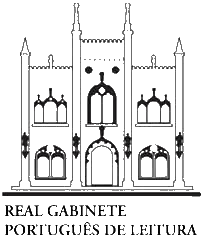Sting and guilt: a dialogue between Valter Hugo Mãe and Bernardo Kucinski
DOI:
https://doi.org/10.37508/rcl.2020.n44a394Keywords:
Valter Hugo Mãe, Bernardo Kucinski, sting and guilt, Salazarism, Brazilian military dictatorshipAbstract
From a comparative perspective, the present study aims to propose a dialogue between the works a máquina de fazer espanhóis (2011) by Valter Hugo Mãe and K.: relato de uma busca (2016), by Bernardo Kucinski. Both Salazarism and the Brazilian military dictatorship (with due regard for differences and respective historical contexts) can be read, metaphorically, as great evils, which deeply affected the Portuguese and the Brazilian social bodies. The protagonists of the two novels, each in their own way, react differently to the alienating pressures of that “great evil”, clarified by Hannah Arendt’s reflections on Origins of totalitarianism (1951) and Elias Canetti on Masse und Macht (1960).text, since it is placed as a place of memory and a way of communication between the past and the present.
Downloads
References
ARENDT, Hannah. Eichmann em Jerusalém: um relato sobre a banalidade do mal. Tradução José Rubens Siqueira. São Paulo: Companhia da Letras, 1999.
ARENDT, Hannah. Origens do totalitarismo: antissemitismo, imperialis¬mo, totalitarismo. Tradução Roberto Raposo. São Paulo: Companhia das Letras, 2012.
CANETTI, Elias. Massa e poder. Tradução Sérgio Tellaroli. São Paulo: Companhia das Letras, 1995.
DALCASTAGNÈ, Regina. Literatura brasileira contemporânea: um território contestado. Vinhedo: Horizonte, p. 63-74, 2012.
HALBWACHS, Maurice. A memória coletiva. Tradução Laurent Léon Schaffter. São Paulo: Revista dos Tribunais, 1990.
KEHL, Maria Rita. Comentários sobre K., de Bernardo Kucinski. 22 nov. 2011. Disponível em: https://www.cartamaior.com.br/?/Coluna/Comenta¬rios-sobre-K-de-Bernardo-Kucinski/20913. Acesso em: 1 out. 2020.
KUCINSKI, Bernardo. K.: relato de uma busca. 4. ed. São Paulo: Compa¬nhia das Letras, 2016.
MÃE, Valter Hugo. a máquina de fazer espanhóis. São Paulo: Cosac Naif, 2011.
NEPOMUCENO, Eric. “K” e a dor sem remédio de uma ausência sem fim. 20 nov. 2011. Disponível em: https://www.cartamaior.com.br/?/Edi-toria/Midia/%27K%27-e-a-dor-sem-remedio-de-uma-ausencia-sem¬-fim/12/17943. Acesso em: 1 out. 2020.
ROSAS, Fernando. O salazarismo e o homem novo: ensaio sobre o Estado Novo e a questão do totalitarismo, Análise Social, v. 35, n. 157, p. 1031-1054, 2001.
SELIGMANN-SILVA, Márcio. História, memória, literatura: o testemu¬nho na era das catástrofes. Campinas: Editora da Unicamp, 2006.
SONTAG, Susan. A doença como metáfora. Tradução Márcio Ramalho. Rio de Janeiro: Graal, 1984.
Downloads
Published
How to Cite
Issue
Section
License
Authors who publish in Convergência Lusíada agree with the following terms:
- Authors retain copyright and grant the journal right of first publication with the work simultaneously licensed under a Creative Commons Attribution-NonCommercial 4.0 International License (CC-BY-NC 4.0) that allows others to share the work with an acknowledgment of the work's authorship and initial publication in this journal.
- Authors may enter into separate, additional contractual arrangements for the non-exclusive distribution of the journal’s published version of the work (e.g., post it to an institutional repository or publish it in a book), with an acknowledgment of its initial publication in this journal.
- Authors are permitted and encouraged to post their work online (e.g., in institutional repositories or on their website) prior to and during the submission process, as it can lead to productive exchanges, as well as earlier and greater citation of published work.

Revista Convergência Lusíada is licensed under a Creative Commons - Atribuição-NãoComercial 4.0 Internacional.









